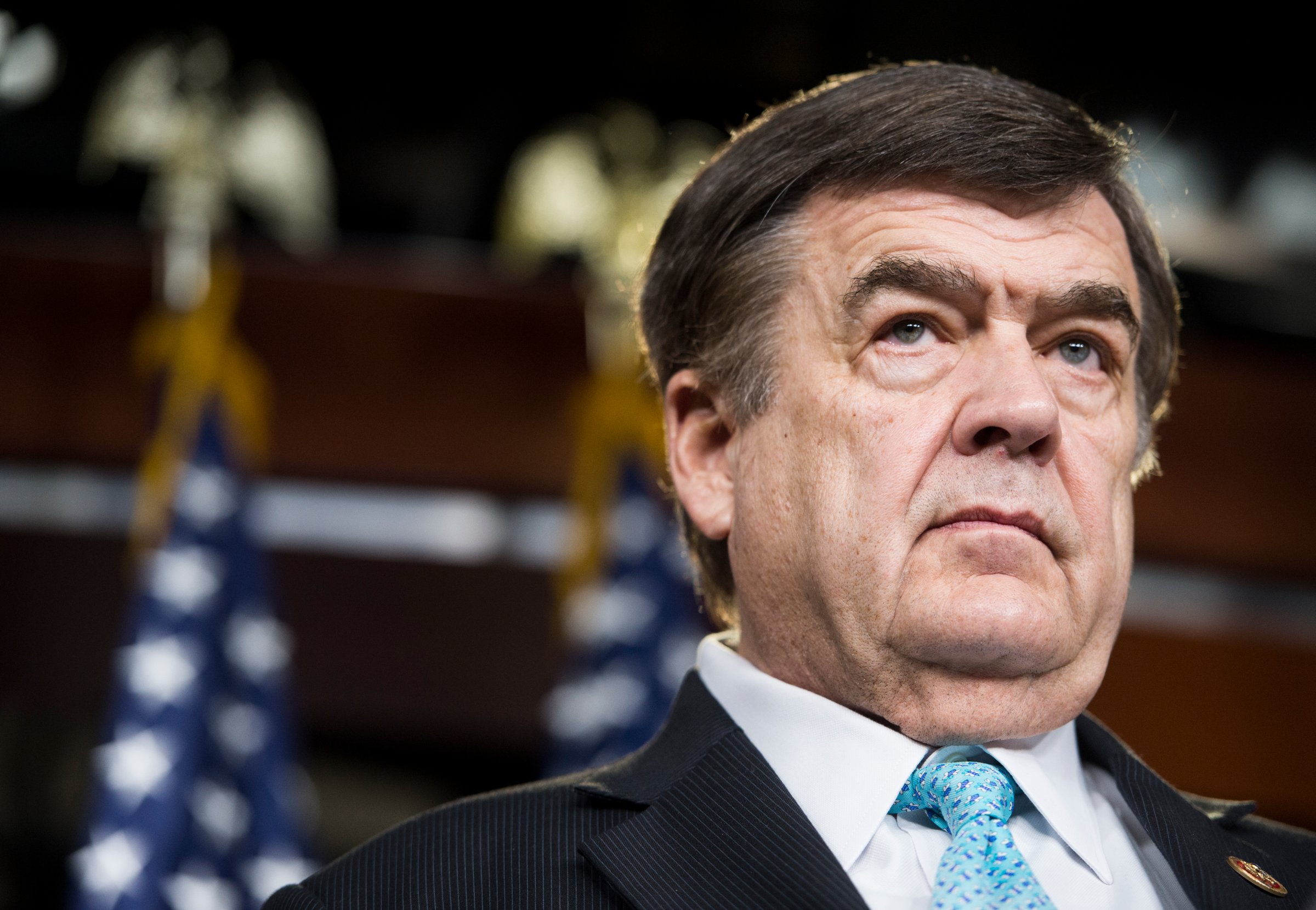
Correction appended, May 6, 2014
Congressional Democrats launched a unified attack on Monday against the newly announced special House committee to investigate the Benghazi attacks as a political ploy that will waste taxpayer money, while Republicans defended the committee as a necessary next step in the investigation of a terrorist attack that killed a U.S. ambassador.
“At this point, there is no new information left uncovered that would warrant the designation of a new committee,” said Dutch Ruppersberger, the House Permanent Select Committee on Intelligence’s ranking Democratic member, who noted that his panel has held 18 events, including a recent open hearing with former CIA Deputy Director Michael Morell.
House minority whip Steny Hoyer described the new committee as a partisan exercise. “Political pressure from the base, people who simply want to, for political sake solely, pursue this matter, apparently have availed upon the speaker to change his mind,” he told reporters on Monday.
Mark Mellman, a pollster whose clients include Senate majority leader Harry Reid and Hoyer, warned that come November voters will feel similarly. “It can hurt Republicans,” Mellman tells TIME. “They are seen as pursuing partisan political vendettas instead of dealing with real problems.”
It is unclear how the new congressional body will be more effective in uncovering new information, since it will have the same powers as other committees in Congress. At the least, the select committee will serve as a clearinghouse for Republicans’ public strategy on Benghazi. “Creating a new committee is a communication coordination [effort],” says Representative James Lankford, the Republican from Oklahoma, a member of the House GOP leadership team. “I don’t know if it’s a new focus — it’s the answers to the questions that we’ve pursued the whole time,” he adds, noting that he had questions regarding communication breakdowns between the Department of Defense and State Department that night, and that he hasn’t heard an adequate explanation on why security personnel were pulled out of the embassy in the weeks before the attack despite calls to the contrary.
Despite extensive investigations — 13 hearings, 25,000 pages of documents and 50 briefings, according to one count — Lankford says there are still questions to be answered, and that “decisionmakers” from the White House, State Department and Department of Defense should speak before the new committee to testify. “The reason this is still a story today is that because we still get a slow trickle of information out in a constant spin rather than just getting the information out,” he says. “The Administration is not responding to our basic requests for documents.”
House Speaker John Boehner has chosen Representative Trey Gowdy of South Carolina, a former prosecutor and hard-line conservative respected by the House GOP leadership, as chairman of the new committee. One senior GOP staffer said Gowdy won’t have any of the “baggage” built up by previous investigations, which include one led by House Oversight and Government Reform Committee chairman Darrell Issa, who publicly supports the new body. Issa has a history of flashy confrontations as chairman, including with fellow members on his committee. In March, Issa cut off ranking Democratic member Elijah Cummings’ microphone and adjourned an Internal Revenue Service hearing while Cummings continued to speak. “Either they think Issa is a competent chairman, and has been pursuing a competent investigation, or they don’t,” Hoyer told reporters on Monday. “He’s had subpoena power.”
House Republican leadership aides tell TIME that the Speaker will appoint the members of the new committee after consultations with other leaders. Whether that includes his Democratic colleagues remains to be seen. Drew Hammill, House minority leader Nancy Pelosi’s spokesman, tells TIME that the office has “not received any information about how the committee would be composed” from the House Republican leadership. The timing of the vote, which requires a simple majority, is still being worked out, but could come as soon as this week.
The Speaker chose to create the committee after a conservative third-party group, Judicial Watch, obtained last week a previously undisclosed email through the Freedom of Information Act. The email, sent from Deputy National Security Adviser Ben Rhodes to former U.N. ambassador Susan Rice three days after the attack, stresses that “these protests are rooted in an Internet video, and not a broader failure of policy.” At the time, the CIA believed the attacks were “spontaneously inspired” by protests in Cairo. But many Republicans are fuming because the White House didn’t include the email in prior disclosures, and Boehner called on Secretary of State John Kerry to testify before Congress on why the Administration “hid” the document. Lankford called the new email “the last straw.”
Republicans believe the new select committee could help the party come November. “The President’s credibility problems — not just on Benghazi, but on Obamacare and the IRS scandal go right to the heart of Americans’ distrust in this White House,” Andrea Bozek, spokeswoman for the National Republican Congressional Committee, tells TIME in an email. “His dismal approval numbers demonstrate the lack of trust families have in him, and it’s dragging down candidates across the country.” The new Benghazi committee could also prove damaging to the legacy of former Secretary of State and potential 2016 presidential candidate Hillary Clinton.
Correction: The original version of this story misstated the number of hearings involved in the Benghazi probe. There were 13 hearings.
More Must-Reads from TIME
- Why Trump’s Message Worked on Latino Men
- What Trump’s Win Could Mean for Housing
- The 100 Must-Read Books of 2024
- Sleep Doctors Share the 1 Tip That’s Changed Their Lives
- Column: Let’s Bring Back Romance
- What It’s Like to Have Long COVID As a Kid
- FX’s Say Nothing Is the Must-Watch Political Thriller of 2024
- Merle Bombardieri Is Helping People Make the Baby Decision
Contact us at letters@time.com